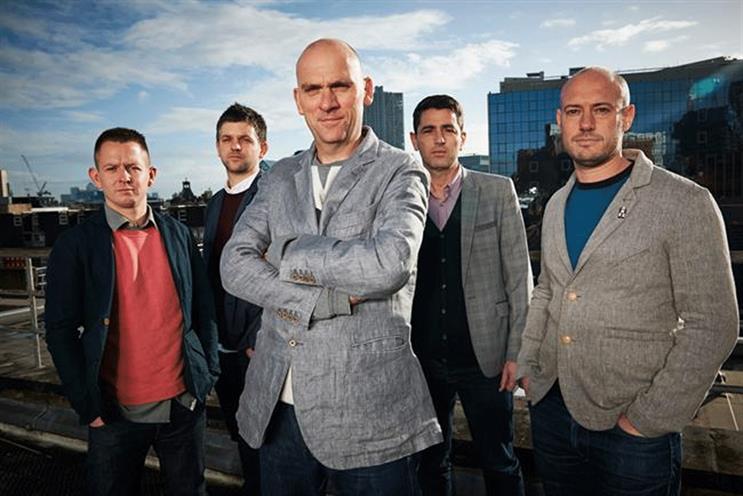
A drive down the Las Vegas strip has always been a way of checking in on what are the biggest mainstream entertainment hits of the day.
From the Rat Pack, through Penn and Teller and Cirque De Soleil to Elton John, Barry Manilow and Motley Crüe – when showbiz brands reach their peak they hit pay dirt as money magnets for desert casinos and hotels.
Over the past few years the names up in neon have changed in a way that few might have predicted a decade ago.
The biggest draws in Vegas today are the likes of David Guetta, Deadmau5, Calvin Harris, Avicii, Diplo and Steve Aoki.
EDM (Electronic Dance Music) has taken the strip. According to the Electronic Vegas website Hakkasan at the MGM Grand Hotel and XS at The Encore took $200 million between them in 2014.
The DJs can be assumed to have walked away with their fair share of that, the likes of Harris can expect to be paid $500,000 for a show and he is said to have earned $66 million in a year from June 2013.
While purist dance fans can perhaps distinguish the nuances in each of their favourite DJ’s performances, for the vast majority of tourists, students and VIPs who flock to Vegas they are buying in to a brand as opposed to an artist.
Guetta, Deadmau5 and Aoki are modern-master case studies of how to build a brand. It's their name, image and logo that fill $200 entry clubs and 50,000 capacity arenas.
Deadmau5 himself recently admitted that when it comes to his live show he does little more than put on his mouse head and "just hit play".
Many of these DJ brands have much in common with popular high street favourites. They have a distinct if often shallow brand "personality" and "attitude".
But how much do we really know about them? Unlike those annoying pop stars with opinions who occasionally say what they think, many DJs, at least in the mainstream, have the same vacuous anonymity as supermodels.
Thankfully in the UK we do things our own way and have another kind of superstar DJ – three-dimensional characters with back stories, pedigrees and personalities. It's on these foundations that Annie Mac, David Rodigan and Pete Tong have built their brands.

They offer an organic "brand" experience for their audiences, not just "plug-in-and-play". Their enduring appeal reflects a desire for authenticity – something that the advertising industry would do well to learn from, when thinking about what consumers want from their content and what they look for in their brands.
Pete Tong's story is perhaps the most impressive. As a 16-year-old Kent soul boy I would rush home from school on a Friday afternoon to hear the 20-year-old Tong play 15 minutes of soul music (as dance was then generalised) on Peter Powell’s Radio 1 drive time show.
It’s always been Tong’s ability to spot a developing market and to position himself perfectly to serve it that has been his strength. He certainly wasn't the first to play house music but it was Pete who commoditised it for radio, clubs and the music business.
Few brand names make it in to the English language. Hoover, Thermos, Google. Add to that list Tong. First an underground catchphrase, then a movie, then in to the Oxford Dictionary of Slang.
It was only once Pete had lost control of his own birth name that he decided to reclaim it and launch the "All gone Pete Tong" brand.
The new branding coincided with the explosion of EDM in the States. Once again Pete was there putting in the miles early.
Now based in LA, he's one of the few UK DJs to have a serious presence in the US, with a States-wide radio show, an agency role at William Morris and a residency on the strip.
Rodigan is of a similar age to Tong, was also once a Capital Radio DJ and, like Pete, has recently had the letters MBE added to the end of his name. Rodigan built his brand through an un-shakeable dedication and love for the music of Jamaica, a peerless broadcasting ability and thousands of hours spent playing to the reggae loving underground the world over.

Worshipped for decades by those in the know it’s only in recent years that "Rodders" has become something of a national treasure. With some smart management guidance he launched the "Rodigan’s Ram Jam" brand that has seen him become a headliner at not just clubs but festivals the world over. The product didn’t change but the rebrand was classy and impactful.
Mac has learnt at the feet of the masters. When she made the transition from back room production staff at Radio 1 to front of mic she quickly began to build a multifaceted brand.
Annie Mac Presents now seamlessly moves between club nights, festivals, radio shows and merchandise. Whilst the old-skool had to work hard to get digital right, for Annie’s generation it came naturally.
Dance music is now huge business and Brits are at its heart. Liverpudlian James Barton, the founder of the Cream nightclub, is now president of electronic music at Live Nation and was recently named the most important person in the EDM world by Rolling Stone magazine.
The past ten years have seen the emergence of DJs as truly global brands. The corporates have now piled in and dance marketeers are looking to the next big markets.
It’s possible that at some point the EDM bubble may burst but right now that seems some way off. Even if that’s the case, my hunch is that those artists, like Tong, Rodigan and Mac, that have built their careers on substance will continue to change and grow and like the greatest brands remain in the hearts of their audience.
Mac and Rodigan are involved in .
Follow everything that's happening at Advertising Week Europe on ±±ľ©Čüłµpk10's live blog.


.jpg)


.jpg)